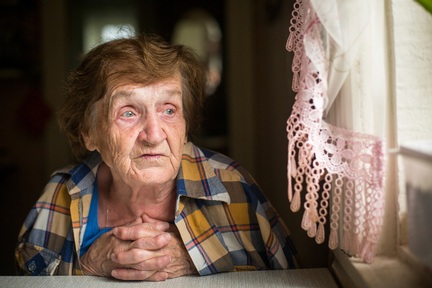An end to 'housing hell' will see elderly age better not badly
To get out of the ‘housing hell’ which hurts elderly people and sends them to hospital, all homes must be ‘affordable, accessible, adaptable and beautiful’, argues a professor of ageing at Newcastle University.

Speaking at a breakfast debate in London, hosted by the Centre for Ageing Better on 27 February, the professor said housing was a way to help people age better not badly.
“The problems of housing roll up at the door of a hospital” said Professor Rose Gilroy, Professor of Ageing, policy and planning at Newcastle University.
“The spending in the NHS because of poor housing is more than a billion pounds a year. Ouch! We actually need better housing. We can wade further into this housing hell. It can get a whole lot worse.”
'Three point turns’ in doorways
With Britain’s new build rate “far too low”, she said basic accessible features were being ignored in homes.
"These features are having no steps up to your front door, having a level threshold, having a lavatory at entrance level and having wide enough doorways “so you don’t have to do some elaborate three-point turn if you’re walking with a stick”.
“The percentage of our housing which has this is woeful.”
The breakfast debate comes days after the English Housing Survey revealed 93 per cent of UK homes don't meet basic accessibility standards.
The Centre for Ageing Better says 'many developers are not building new homes that are suitable for people as they age'.
A separate YouGov poll of 4,000 people (commissioned by the Centre for Ageing Better) revealed 72 per cent of those asked, think all new homes should be built to be suitable for all ages and abilities. The poll found nearly half 48 per cent of the population do not think society does enough to enable people to live independently and safely at home as they grow older.
A third (33 per cent) of those polled would be happy to buy a home that came with features like level access entrances, walk-in showers or handrails. National rules say a proportion of every development should include homes that are accessible or could be adapted in future.
The responsibility for managing this lies with local authorities, but there is no standardised way to assess future need for accessible homes in an area. Local plans which would deliver accessible homes are often rejected.
Professor Gilroy said: “Most older people now are home owners: 76 per cent. “We used to have this idea that home ownership meant that people were well off.”
Some 67 per cent of older people living in poverty are owner occupiers. The asset rich, income poor elderly population is not helped by the retirement of the ‘right to buy’ generation.
“Those people haven’t retired on a shedload of money. They haven’t got the money to invest in their housing - growing issues of disrepair. “Where actually are they going to move to? What are people building? Is it affordable, is it accessible? Is it where people want to live?
Don’t put 'eggs in age-targeted housing'
She argues homes for the elderly can look “remarkably institutional” and “because the idea of an old life is a small life you give people a wee amount of space.”
“We should not be putting our eggs in age-targeted housing. Why can’t we focus on what binds us together? We all want affordable, accessible, adaptable and beautiful. Something beautiful is not extraneous in our life, it’s not a frippery. I think it’s a common human need.”
Dr Anna Dixon, chief executive of the Centre for Ageing Better, said: “We are facing an accessible housing crisis. There is a big market for homes that everyone can live in, regardless of their age or ability. Our research shows a strong public appetite for age-proof homes.
“National rules must be strengthened, and planners within local authorities must work with developers and builders to enforce them.”
The chief executive is calling on developers and councils to build every new home to Category 2 standard, meaning that they are accessible for someone with a disability and, if needed, can be cost-effectively adapted to meet additional needs.
Although currently preoccupied by Brexit, Theresa May has talked about delivering five years of extra health. Professor Gilroy said the Prime Minister could actually achieve this by investing more in housing.
However, with most people denied the “privilege of living in new build”, Professor Gilroy urged the government to invest “considerably more” in existing housing stock.
Professor Gilroy added: “Just because people are owners I don’t think it means that they have to shoulder the whole burden of keeping their housing in decent repair because poor housing is not a private matter it’s an issue for society. That housing problem causes problems in our health service.”
Latest News
 29-Jul-24
Dementia Bus gives carehome.co.uk staff insight into life with dementia
29-Jul-24
Dementia Bus gives carehome.co.uk staff insight into life with dementia
 27-Jul-23
UK's top home care agencies in 2023 revealed
27-Jul-23
UK's top home care agencies in 2023 revealed
 30-Nov-22
A quarter of older people keep their falls secret from family
30-Nov-22
A quarter of older people keep their falls secret from family
 29-Nov-22
'Covid-19 has not gone away' say terminally ill
29-Nov-22
'Covid-19 has not gone away' say terminally ill
 28-Nov-22
IT consultant who received poor care opens 'compassionate' home care business
28-Nov-22
IT consultant who received poor care opens 'compassionate' home care business